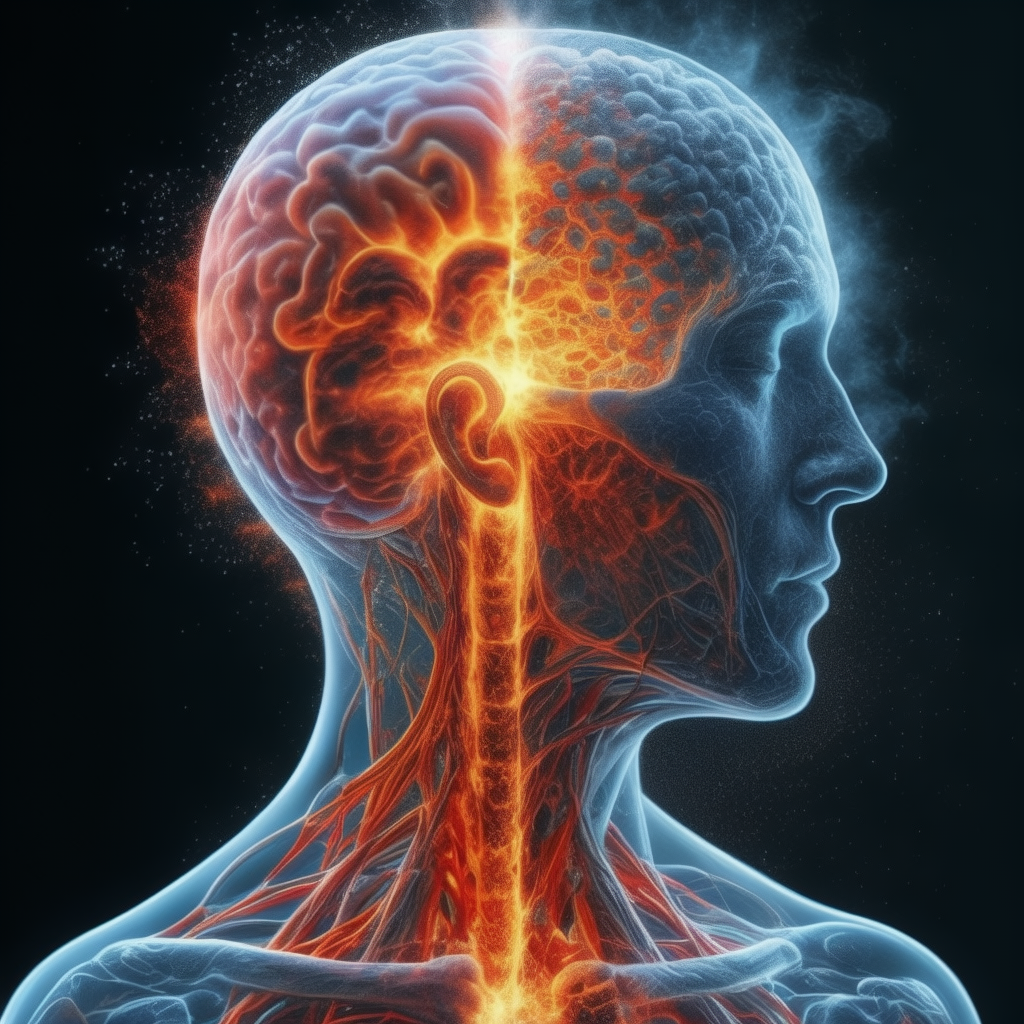Enhancing Cognitive Aptitudes: The Cornerstones of Effective Decision Making
In the fast-paced world of software development, artificial intelligence, and machine learning, certain cognitive aptitudes are not only valuable but indispensable. Logic building, analytical approach, reasoning, questioning, critical analysis, cognitive processing speed, information processing, and the rapid comprehension of sensory information form the bedrock of effective decision-making. However, these skills are not confined to the tech industry; they are essential in all areas of life. Without these qualities, humans struggle to operate effectively, leading to suboptimal decision-making and a myriad of problems.
The Cognitive Aptitudes: Definitions and Importance
- Logic Building: The ability to construct coherent, logical sequences of thought. Crucial in problem-solving and coding.
- Analytical Approach: The capacity to break down complex problems into smaller, manageable components. Vital for debugging and algorithm development.
- Reasoning: The process of forming conclusions, judgments, or inferences from facts or premises. Fundamental in AI model training and ethical decision-making.
- Questioning: The drive to inquire and explore. It fuels innovation and improvement.
- Critical Analysis: The skill to evaluate arguments, identify errors, and derive well-founded conclusions. Key in code reviews and peer evaluations.
- Cognitive Processing Speed: The ability to process information rapidly and accurately. Essential in real-time systems and dynamic problem-solving.
- Information Processing: The capability to absorb, interpret, and respond to data. Integral to data analysis and machine learning.
- Sensory Information Comprehension: The proficiency in quickly understanding and integrating sensory input. Important in user interface design and experience.
The Science Behind Cognitive Skills
Neuroscience and Neurobiology
The brain is the control center for cognitive functions. Key areas include:
- Prefrontal Cortex: Responsible for higher-order functions like reasoning, problem-solving, and critical thinking.
- Hippocampus: Essential for memory formation and information processing.
- Amygdala: Plays a role in emotional responses, which can impact decision-making.
- Neurotransmitters: Chemicals like dopamine and serotonin affect mood, motivation, and cognitive processing.
Neurochemistry
- Dopamine: Influences motivation, reward, and attention. Higher levels can enhance cognitive performance.
- Serotonin: Regulates mood and anxiety, which can indirectly affect cognitive abilities.
Evolutionary and Genetic Perspectives
Cognitive abilities have evolved as humans adapted to complex environments. Traits like problem-solving and critical thinking provided evolutionary advantages. Genetic predispositions also play a role; studies have shown that certain cognitive traits can be heritable. However, environment and experience significantly influence their development.
Environmental Influences
- Education: Structured learning environments foster cognitive development.
- Socioeconomic Status: Access to resources can affect cognitive growth.
- Stress: Chronic stress negatively impacts cognitive functions, while moderate stress can enhance performance.
- Physical Health: Regular exercise and a healthy diet improve brain function.
Strategies to Enhance Cognitive Aptitudes
Scientific Methods and Research
- Cognitive Training: Programs like Lumosity and BrainHQ offer exercises designed to enhance specific cognitive skills. Research supports their efficacy in improving processing speed and memory.
- Mindfulness and Meditation: Studies show that mindfulness practices can improve attention, cognitive flexibility, and emotional regulation.
- Physical Exercise: Regular aerobic exercise has been linked to improved cognitive function and brain plasticity. Activities like running, swimming, and yoga are beneficial.
- Nutrition: Diets rich in omega-3 fatty acids, antioxidants, and vitamins support brain health. Foods like fish, berries, and leafy greens are particularly effective.
Techniques and Strategies
- Problem-Solving Exercises: Engage in activities that challenge the brain, such as puzzles, chess, and coding competitions.
- Continuous Learning: Pursue lifelong learning through courses, reading, and professional development.
- Critical Thinking Practice: Engage in debates, write analytical essays, and practice questioning assumptions.
- Mind Mapping: Visual tools like mind maps can enhance information processing and memory retention.
- Sleep: Ensure adequate sleep as it is crucial for memory consolidation and cognitive function.
- Social Interaction: Engaging in meaningful social activities stimulates cognitive processes and emotional well-being.
Research Studies
- Cognitive Reserve Theory: Suggests that engaging in mentally stimulating activities can build a reserve that helps maintain cognitive function in later life (Stern, 2009).
- Neuroplasticity: Research by Dr. Michael Merzenich shows that the brain can reorganize itself by forming new neural connections throughout life, highlighting the importance of continuous cognitive engagement.
- Bilingualism: Studies indicate that bilingual individuals often have better cognitive flexibility and executive control.
Enhancing  aptitudes is a multifaceted endeavor that encompasses various strategies, research findings, and practical approaches. Now we will delve deeper into additional aspects of logic building, analytical thinking, reasoning, questioning, critical analysis, cognitive processing speed, information processing, and sensory information comprehension, and provide comprehensive explanations for each.
aptitudes is a multifaceted endeavor that encompasses various strategies, research findings, and practical approaches. Now we will delve deeper into additional aspects of logic building, analytical thinking, reasoning, questioning, critical analysis, cognitive processing speed, information processing, and sensory information comprehension, and provide comprehensive explanations for each.
The Role of Neuroplasticity
Neuroplasticity refers to the brain’s ability to reorganize itself by forming new neural connections throughout life. This adaptability is crucial for cognitive development and recovery from brain injuries. Engaging in diverse and challenging mental activities can stimulate neuroplasticity, enhancing overall cognitive function. Activities such as learning a new language, playing musical instruments, or even traveling to new places can create new neural pathways and strengthen existing ones, thereby improving cognitive resilience and flexibility.
Impact of Multitasking
Multitasking is often seen as a way to enhance productivity, but research indicates that it can impair cognitive processing speed and accuracy. Studies show that the human brain is not designed to handle multiple tasks simultaneously, leading to decreased performance and increased error rates. To improve cognitive function, it is beneficial to focus on single tasks and employ techniques such as the Pomodoro Technique, which involves working in focused intervals followed by short breaks. This approach helps maintain high levels of concentration and efficiency.
Cognitive Behavioral Therapy (CBT)
Cognitive Behavioral Therapy (CBT) is a psychological intervention that helps individuals identify and challenge distorted thinking patterns. While primarily used to treat mental health disorders, CBT techniques can also enhance cognitive abilities by promoting rational thinking and problem-solving skills. Practicing CBT involves techniques such as cognitive restructuring, which helps individuals reframe negative thoughts, and behavioral experiments, which test and modify unhelpful beliefs. These practices can improve critical thinking and emotional regulation.
The Influence of Mindset
Growth Mindset vs. Fixed Mindset: Coined by psychologist Carol Dweck, these terms describe underlying beliefs about learning and intelligence. A growth mindset, which embraces challenges and views failures as opportunities for growth, can significantly enhance cognitive abilities. Individuals with a growth mindset are more likely to engage in persistent problem-solving and are open to learning from mistakes. Fostering a growth mindset involves self-reflection, embracing challenges, and viewing effort as a path to mastery.
The Benefits of Physical Exercise
Regular physical exercise is not only beneficial for physical health but also for cognitive function. Aerobic activities, such as running, cycling, and swimming, have been shown to increase the production of neurotrophic factors like BDNF (Brain-Derived Neurotrophic Factor), which support the growth and differentiation of new neurons. Exercise also enhances blood flow to the brain, improving memory, attention, and processing speed. Incorporating a mix of aerobic and strength training exercises can optimize cognitive benefits.
Meditation and Mindfulness Practices
Meditation and Mindfulness practices are powerful tools for enhancing cognitive abilities. Research indicates that regular meditation can increase gray matter in the brain, particularly in areas related to attention, emotion regulation, and memory. Mindfulness meditation involves focusing on the present moment and observing thoughts and sensations without judgment. This practice can reduce stress, improve attention span, and enhance cognitive flexibility. Techniques such as mindful breathing, body scans, and guided imagery can be easily integrated into daily routines.
Role of Nutrition in Cognitive Health
A balanced diet rich in essential nutrients supports optimal brain function. Omega-3 fatty acids, found in fish like salmon and walnuts, are crucial for maintaining cell membrane fluidity and promoting neurogenesis. Antioxidants, present in berries, dark chocolate, and green tea, protect brain cells from oxidative stress. Vitamins and minerals such as B vitamins, vitamin D, and magnesium play vital roles in neurotransmitter synthesis and brain energy metabolism. Staying hydrated and avoiding excessive sugar and processed foods can also enhance cognitive performance.
Importance of Sleep Hygiene
Sleep is fundamental for cognitive health. During sleep, the brain undergoes processes critical for memory consolidation, toxin removal, and neural repair. Poor sleep quality can impair attention, problem-solving, and emotional regulation. To improve sleep hygiene, establish a regular sleep schedule, create a restful environment, limit exposure to screens before bedtime, and avoid caffeine and heavy meals in the evening. Practices like progressive muscle relaxation and reading can also promote better sleep.
Social Interaction and Cognitive Stimulation
Engaging in social activities provides cognitive stimulation and emotional support. Interacting with others challenges the brain to process complex social cues, enhance language skills, and improve emotional intelligence. Activities such as group discussions, team sports, and volunteering can foster cognitive and emotional growth. Building strong social networks also provides a buffer against stress and cognitive decline, contributing to overall brain health.
Environmental Enrichment
Environmental Enrichment involves creating stimulating surroundings that promote cognitive development. This can include exposure to diverse experiences, such as traveling, exploring nature, and participating in cultural activities. Enriched environments provide opportunities for learning and adapting to new challenges, which can enhance cognitive flexibility and creativity. Ensuring a stimulating environment at home and work, with access to books, art, music, and diverse social interactions, can support cognitive growth.
Genetic and Epigenetic Factors
Genetics plays a role in cognitive abilities, but it is not the sole determinant. Epigenetic factors, which involve changes in gene expression without altering the DNA sequence, can be influenced by environmental factors such as diet, stress, and physical activity. Research shows that engaging in cognitively stimulating activities can induce epigenetic changes that enhance brain function. Understanding the interplay between genetics and environment can help tailor strategies to optimize cognitive development.
Cognitive Rehabilitation and Brain Training
Cognitive Rehabilitation programs are designed to improve cognitive function in individuals with brain injuries or cognitive impairments. These programs use targeted exercises to enhance specific cognitive skills, such as memory, attention, and executive function. Brain training platforms like CogniFit and Peak offer personalized exercises based on cognitive assessments. Regular engagement with these programs can lead to measurable improvements in cognitive abilities and everyday functioning.
Impact of Music and the Arts
Music and arts have profound effects on cognitive development. Learning to play an instrument can enhance memory, spatial-temporal skills, and executive function. Engaging in visual arts stimulates creativity and problem-solving abilities. Exposure to music and art therapy has been shown to reduce stress, improve mood, and enhance cognitive processing. Encouraging participation in music and arts from an early age can foster a lifelong appreciation and cognitive benefits.
Technology and Cognitive Enhancement
Advancements in technology offer new avenues for cognitive enhancement. Virtual reality (VR) and augmented reality (AR) applications can provide immersive experiences that challenge the brain and enhance learning. Neurofeedback, which involves monitoring and training brain wave patterns, can improve attention and cognitive control. Integrating these technologies into educational and therapeutic settings can provide innovative ways to boost cognitive function.
Conclusion
Improving cognitive aptitudes is a dynamic and multifaceted process that involves a combination of lifestyle changes, mental exercises, and environmental adjustments. By leveraging the principles of neuroplasticity, adopting a growth mindset, engaging in regular physical exercise, and practicing mindfulness, individuals can significantly enhance their cognitive abilities. Nutrition, sleep hygiene, social interaction, and environmental enrichment further support cognitive health. Understanding the genetic and epigenetic factors, as well as the benefits of cognitive rehabilitation, music, arts, and technology, provides a comprehensive approach to optimizing cognitive function. These strategies are not only crucial for professionals in software development and AIML but are essential for effective decision-making and overall well-being in all areas of life
Enhancing cognitive aptitudes like logic building, analytical approach, and critical analysis is essential not just in the AIML space but in all aspects of life. By leveraging scientific methods, engaging in continuous learning, and fostering a stimulating environment, individuals can significantly improve these skills. This holistic approach, supported by neuroscience, evolutionary biology, and practical strategies, provides a roadmap for developing the cognitive prowess necessary for effective decision-making and problem-solving in today’s complex world.
By integrating these practices into daily life, individuals can enhance their cognitive capabilities, leading to improved performance, better decision-making, and a more fulfilling life.







